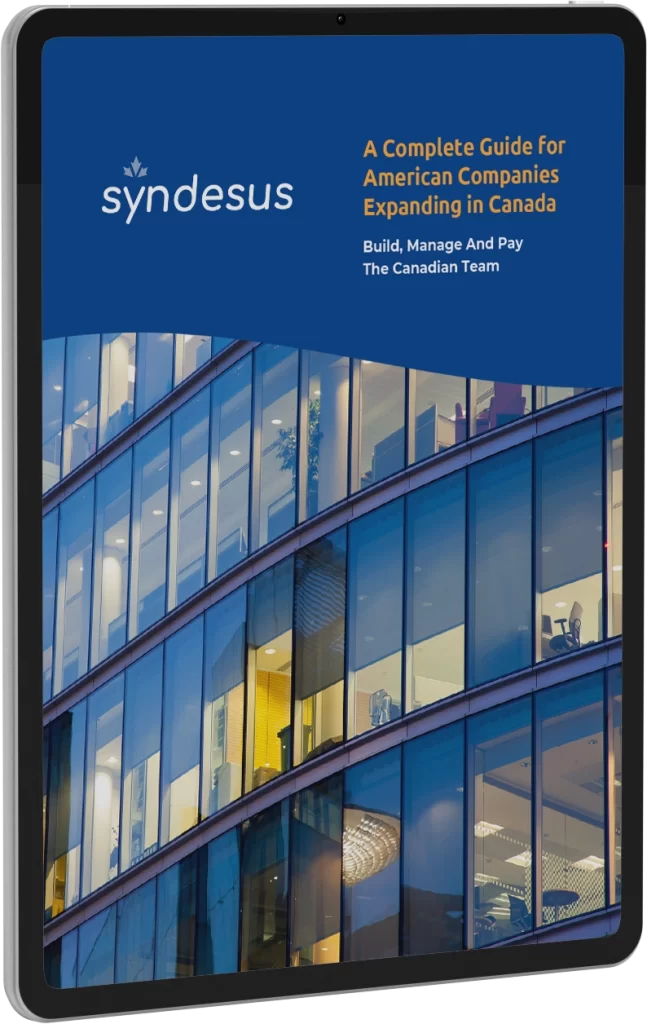The United States remains a global leader in technology and innovation, but for many tech companies, securing skilled foreign talent has become increasingly difficult. With the local talent pool unable to meet growing demands, companies are turning to foreign workers to fill crucial roles.
For international students, transitioning from a student visa to work visas presents significant challenges, adding to the complexities of the US immigration system.
However, navigating the US immigration system for work visas can be complex and time-consuming.
Below, we explore five of the most common challenges tech companies face when hiring foreign talent—and how to overcome them.

Understanding US Visa Challenges
Navigating the US visa application process can be daunting, especially for first-time applicants. The system is designed to ensure that only eligible individuals enter the country, making it quite rigorous. One of the primary challenges visa applicants face is the lengthy processing times. The US Department of State recommends applying for a visa at least 60 days before the intended travel date, but in some cases, processing times can extend to several months. Applicants may experience technical difficulties and might need to wait a few moments before trying again.
Another significant hurdle is demonstrating sufficient financial support. Visa applicants must prove they have enough financial resources to support themselves during their stay in the US. This requirement can be challenging for individuals without a steady income or substantial savings. Ensuring you have all necessary documentation to prove financial stability is crucial for a successful application.
Overview of U.S Visa Challenges
The U.S. visa application process can be complex and challenging for many applicants. With various types of visas available, each with its own set of requirements and eligibility criteria, it’s essential to understand the process thoroughly to avoid any potential issues. Common challenges include understanding which visa category to apply for, meeting the eligibility criteria, and ensuring all documentation is accurate and complete. Additionally, applicants often face long processing times and the need to demonstrate sufficient financial support and strong ties to their home country. By being well-prepared and informed, visa applicants can navigate these challenges more effectively.
Problem 1 : Misaligned eligibility standards for US visa categories
The US immigration system often struggles to keep up with the rapidly evolving tech industry. For example, many tech roles, particularly in fields like AI, blockchain, and DevOps, don’t require traditional degrees, yet the H-1B visa mandates a degree as a prerequisite.
Additionally, job descriptions must fit into rigid occupational codes that don’t always reflect the modern tech landscape. This disconnect can result in rejected applications and missed opportunities for companies and prospective employees.
Solution: An immigration lawyer can help
Work with experienced immigration lawyers who specialize in tech visa categories. They can help tailor job descriptions and applications to meet visa requirements while highlighting relevant skills and experience.
This ensures that companies don’t have to conform to outdated criteria for talented prospects and helps maximize the chances of approval.
Problem 2: H-1B Visa lottery system
The H-1B visa is one of the most popular options for hiring foreign tech workers, but its lottery system severely limits access. With only 85,000 visas available annually and tens of thousands of applicants, the odds of securing a visa are slim.
This problem is particularly pronounced for smaller companies that cannot afford to submit large numbers of applications like more prominent corporations.
Solution: A visa alternative
Companies can consider alternative visa programs like the L-1 visa for intra-company transfers or the O-1 visa for individuals with extraordinary abilities in the tech field.
Exploring these options can improve your chances of securing a visa without relying on the highly competitive H-1B lottery.
Problem 3: Lengthy processing times and bureaucratic delays
Visa processing times can stretch from months to over a year, leaving tech companies uncertain. With the number of visa applications surpassing pre-Covid levels for Indian citizens alone, the backlog isn’t expected to go away soon.
Delays not only affect project timelines but can also prevent key hires from starting on time. Even with expedited processing, there’s no guarantee of a quick turnaround.
Solution: Premium processing for visas
Companies should apply for visas well in advance and explore premium processing for faster processing when available. Planning and staying organized can help minimize the impact of delays.
It’s also worth consulting with immigration experts who can track visa application progress and address potential issues early.
Problem 4: Restrictive caps and quotas
Annual caps on H-1B visas and lengthy green card backlogs, especially for workers from countries like India and China, create significant barriers.
This issue makes it difficult for tech companies to hire or retain foreign workers long-term, as employees from these countries often face long waiting periods for green card approval.
Solution: Canada’s Global Talent Stream
Tech companies can consider applying for the Global Talent Stream (GTS) in Canada or leveraging other pathways that don’t face the same restrictive quotas as the U.S.’s H1-B visa system.
Additionally, GTS offers fast-tracked work permits, often processed in as little as two weeks, offering a more predictable alternative to the US system.
Problem 5: Increased Scrutiny and Political Instability
Immigration policies in the US are subject to frequent changes, creating an environment of unpredictability.
Increased scrutiny, more Requests for Evidence (RFEs), and a higher rate of denials can complicate the visa process. Political debates over immigration reform further add to the uncertainty.
Solution: Immigration attorneys who can stay ahead of changes
Companies should stay informed about potential policy changes and work with immigration attorneys who can navigate the shifting landscape.
Additionally, diversifying hiring strategies and considering other countries with stable immigration policies can reduce reliance on the US system.
Additional Procedural Challenges
In addition to the common challenges mentioned earlier, U.S. visa applicants may also face procedural challenges that can delay or complicate the application process. These challenges can include incomplete or inaccurate documentation, which can lead to delays or outright rejections. Ensuring that all required documents are submitted and accurate is crucial. Another significant hurdle is demonstrating sufficient financial support; applicants must show they have the financial means to cover their expenses during their stay in the United States. Additionally, applicants must demonstrate strong ties to their home country to ensure they intend to return after their visit. Visa processing times can also vary significantly depending on the type of visa and the workload of the U.S. Embassy or Consulate. Being aware of these procedural challenges and preparing accordingly can help applicants navigate the visa process more smoothly.
Experiencing Technical Difficulties
Technical difficulties can occur during the visa application process, causing frustration and delays. If you’re experiencing technical difficulties, there are several steps you can take to resolve the issue. First, check your internet connection to ensure it is stable and working properly. Sometimes, a simple reset of your router can solve the problem. Next, try clearing your browser cache, as outdated or corrupted data can cause issues with the application site. If these steps don’t resolve the problem, contact the U.S. Embassy or Consulate for assistance. They can provide guidance and support to help you complete your application successfully.
Supplementary Information Requirements
In some cases, additional information may be required to support your visa application. This can include police certificates from your home country or countries where you’ve lived, which demonstrate your good conduct. Medical certificates may also be required to show that you are in good health and fit for travel. Financial documents are often necessary to prove that you have the financial means to support yourself during your stay in the United States. By understanding these supplementary information requirements and preparing the necessary documents in advance, you can ensure a smoother and more efficient visa application process.
By understanding the common challenges and procedural requirements of the U.S. visa application process, applicants can better prepare themselves for a successful outcome.
The Ultimate Solution: US companies are turning to Canada
Given these ongoing challenges, many tech companies are looking beyond the US to Canada, which offers a more streamlined and efficient immigration system.
The benefits of Canada for tech talent:
Streamlined immigration pathways
Programs like the Global Talent Stream and the Provincial Nominee Program provide fast work permits for tech workers.
The applications are often processed in a matter of weeks rather than months or years that it can take in the U.S. immigration system.
Permanent Residency options
Canada’s Express Entry system offers relatively quick and clear pathways to permanent residency for skilled professionals.
Not only are visa applications processed quickly, but these visa programs also provide a clear pathway to Canadian residency and, eventually, Canadian citizenship.
Cost of living
While cities like Toronto and Vancouver are not cheap, living costs remain more affordable than major US tech hubs like San Francisco or New York.
The Canadian healthcare system is also considered a significant benefit for workers looking to move.
Political stability
Canada’s immigration policies are stable and welcoming to international talent, offering long-term security for tech workers and their families.
For many tech companies, Canada presents a viable alternative to the US, providing a more predictable and efficient immigration process while maintaining access to global talent.
A lifeline for US tech companies: Canadian Tech Talent Relocation Program (TRIP)
For companies struggling with US visa restrictions, Syndesus offers a solution: the Canadian Tech Talent Relocation Program (TRIP).
This program enables US-based tech companies to relocate their tech talent to Canada while keeping them employed with the same US company.
The key benefits of TRIP
Seamless relocation
Employees can move to Canada without losing their jobs with their US company and can even keep their work hours in the same time zone.
Retention of key talent
Companies can avoid losing valuable employees due to visa denials or expirations out of their control.
Comprehensive support
Syndesus helps employers and employees with all aspects of the relocation process, including visa applications and settling in Canada.
By utilizing TRIP, companies can continue to leverage their tech talent while sidestepping the bottlenecks of the US immigration system.
Consider a more intelligent strategy for global talent
As the demand for tech talent continues to grow, US companies must overcome the significant barriers posed by the current immigration system.
U.S. Visa challenges—from the H-1B lottery system to lengthy processing times—will unlikely disappear soon. However, tech companies can secure the talent they need by considering alternatives like Canada’s Global Talent Stream and leveraging programs like Syndesus’s TRIP.
With its streamlined immigration pathways, stable policies, and access to a diverse and skilled workforce, Canada offers a unique opportunity for tech companies to retain and grow their teams without the headaches of the US visa system.
If your company is facing challenges with US immigration, Syndesus can help. Set up a consultation with us today to learn how our Canadian Tech Talent Relocation Program can ensure your company stays competitive and continues to thrive with top global talent.

